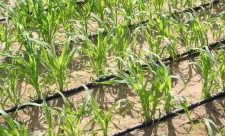
Warming with an escape: characteristics of material and technology Insulation
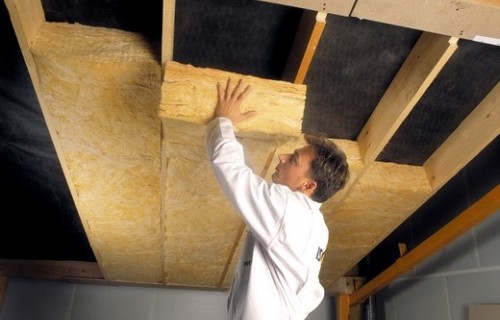
Even with the use of the most innovative and modern materials and technologies in construction, it will not be possible to avoid the need for additional thermal insulation of all parts of the structure. Only when laying the insulation layer, you can get a really favorable microclimate in the room at any time of the year and reduce the cost of heating the building. One of the most popular insulation materials for today is an escape, about all the peculiarities of which you will learn from this article.
Content
Insulation Eau return chemical composition
In essence, the avoor is an improved modification of more familiar mineral wool. What an escape looks like, you can look at the photo or in any construction store. 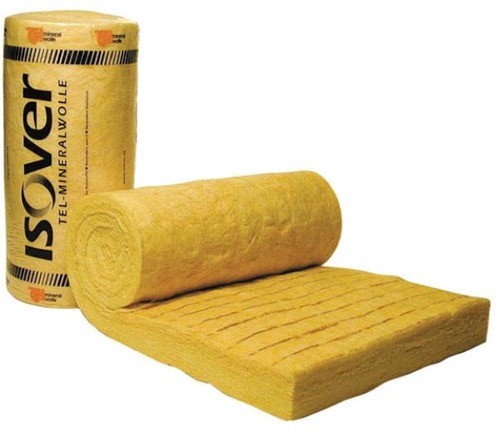
Its base is a glass fiber similar to the material used in the production of containers for food. In addition, there are:
- natural resins that hold fibers in the initial position;
- sand;
- hydropobizers;
- plasticizers.
Important! All components have a natural nature of origin, which is important about the quality of the material according to the current tendency to use exclusively environmentally friendly materials in any construction. For their compounds are used in the production process of TEL and TWIN technology.
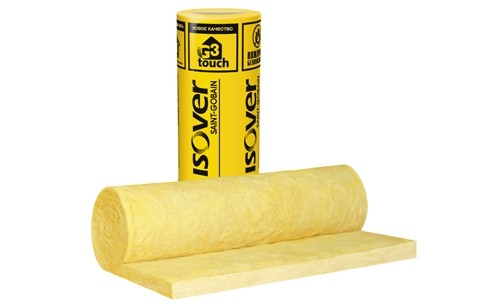
Characteristics of Isovera
Before buying an escape, it will not be superfluous to learn about all the peculiarities of this material, its technical characteristics, advantages and principles of installation. The market presents a fairly wide species series of this material, the parameters of which are shown below:
- Thermal conductivity - 0.031-0.041 W / MK. Such a low indicator causes excellent insulation and heat saving indicators with their stable conservation over a long period.
- Density - 10-20 kg / m3.
- Combustion. The escape refers to the NG class (fully non-combustible materials). Foil and semi-rigid insulation of this species belongs to the category of SG (weakly flammable).
- Parry permeability - 0.5-0.55 mg / MCHP. Fiberglass absorb moisture, but it is completely given as it dry. Therefore, when complying with the installation and registration of the ventilation gap between layers, problems with a decrease in thermal insulation properties is not observed.
- Air permeability - 120x10-6m 3/ M * C * PA.
- Soundproofing corresponds to high indicators due to the presence of an air layer between fiberglass.
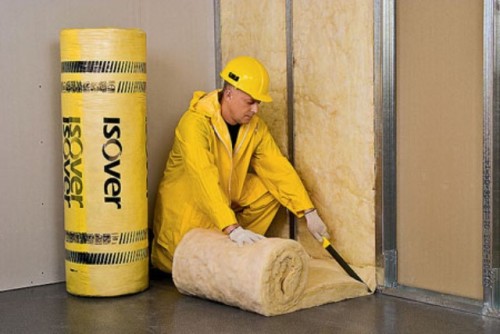
- Operating period. Guarantees, the service life is at least 50 years.
- The weight. The escape has a light weight, so suitable for mounting on structures with a weak bearing load.
- Release form. At the current market, this insulation comes in several options - rolls, mats, stoves.
- Thickness -5-10 cm with an amount of 1 or 2 layers.
- The width of the rolled cloth is 1.2m with a length of 7-14 meters.
- Roll area is 16-20 meters, the slab material is available in size 1 * 1 meter.
Important! The price of the exorder depends on the type of material, form of release and supplier.
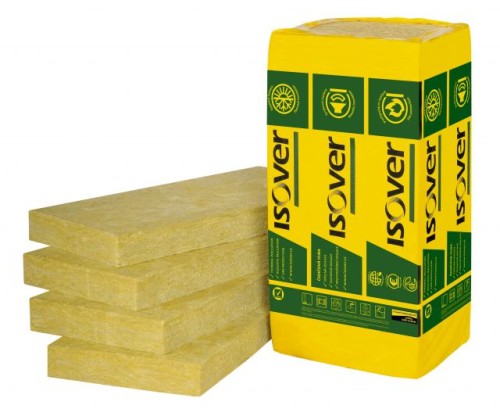
Benefits of material escape
The technical characteristics of the izovera determine the presence of a large number of advantages over other materials - this is:
- durability;
- elasticity;
- complete infertility of rotting;
- fire safety;
- stable temperature indoor temperature;
- saving funds on heating during the cold season and the operation of climate equipment in the summer heat;
- environmental purity and compliance with all modern hygiene requirements;
- low price;
- simplicity of installation and convenience in work;
- reducing the cost of transportation due to light weight and convenient form of release - rolls and plates.
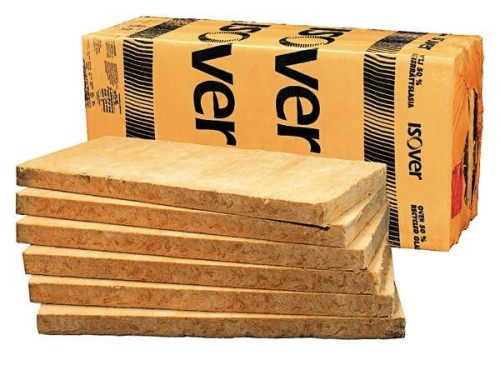
Application Isovera
As already mentioned, the assortment of the insulation of the isois is quite wide, therefore covers all possible directions of this construction phase. Each species has certain recommendations regarding the application:
- KL 34 - Multilayer masonry and ventilated facades, including horizontal, vertical, inclined surfaces.
- KL 37 - for the insulation of intergenerational floors, scope roofing, walls.
- KT 37 - for thermal insulation of attic rooms, roofing space, overlap, partitions and bearing walls outside and inside the building.
- KT 40 - exclusively for horizontal surfaces inside the building: floors, ceilings.
- Styrofoam 300A - for vertical and horizontal planes inside the building and on the facade, including for flat roofs.
- Ventiterm - universal option for registration of the ventilated facade, insulation of pipelines and isolation from cold air of accurate equipment.
- The "scope roof" is designed specifically for the insulation of the pitched roofs of any configuration.
- The "sound protection" is suitable for internal additional noise insulation when the partitions are erected between the rooms and the design of the suspended ceilings.
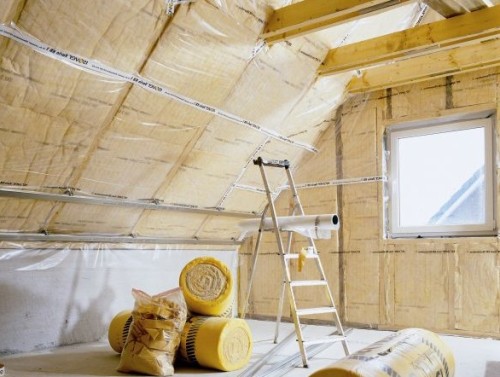
Montage Isovera
Easvelops are mounted extremely dry method - mainly on the frame from metal products or wood.
Important! One of the advantages of applying this insulation is that careful preparation of the foundation is not required. Even to challenge all flaws in the process of laying the canvas. And this entails not only savings on consumables, but also reduces the time spent on the whole process.
Tools for mounting
To perform work, you will need:
- level;
- saw;
- screwdriver;
- construction knife;
- roulette;
- construction stapler;
- marker;
- hammer;
- dowel, selflessness, nails;
- metallized Scotch.
Important! Do not forget about the means of protection, as glass dust in the process of performing work can harm your health, in particular, leather and respiratory tract. Be sure to use:
Mounting Iover on Frame - Instructions
Installation technology of this insulation is very simple. However, to get a really high-quality result, be sure to follow the sequence of actions and the required conditions given in the instructions below. 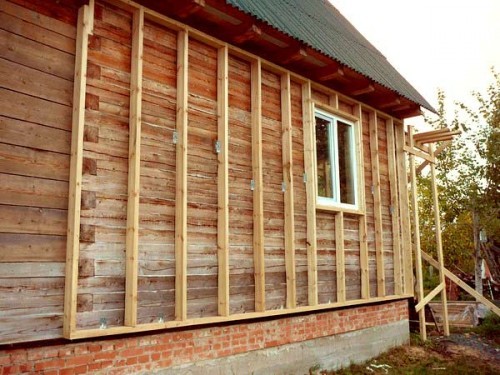
Proceedings:
Remove from the walls or overlaps all the construction trash and old finishing materials if you repair.
- Stop big protrusions.
- Treat the surface with fungicidal means to prevent mold formation.
- Calculate the desired amount of wooden plates or metal products.
- Mount the details, withsting the distance between the rails of 60-100 cm.
Important! Determine the desired profile step, given the width of the material - the width of the web must match.
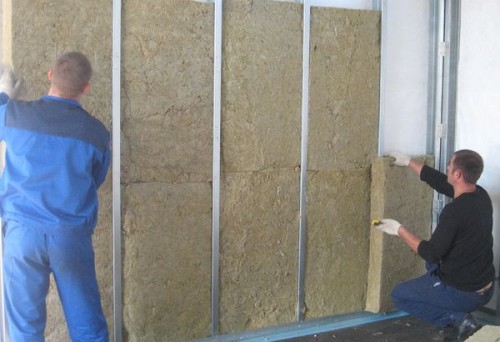
- Make the laying of vapor barrier material - foil-based films, braziness.
- For fastening, use the mounting metallized tape.
- Place the carcass.
- When internal finishing - on top to put plasterboard plates.
- Shawl.
- Reduce the surface with the selected material.
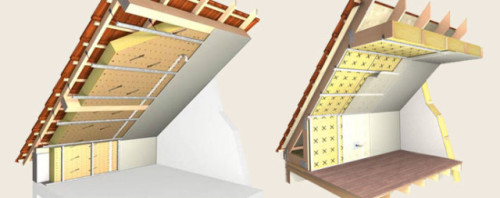
Eau return Rules
If before making insulation an escape, it will have to be stored for some time, be sure to follow these rules:
- it is better to lay material on pallets to prevent moisture absorption and mechanical slab deformations;
- laying the slab material layers, heavier packaging place down to prevent them in faming and changing the shape;
- watch that the package remains hermetic;
- open bags at mounting gently so that they are then used as a packaging for assembling the construction trash.
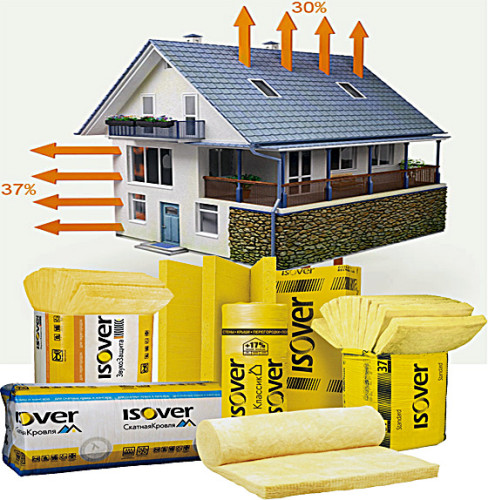
Conclusion
Warming an escape is a modern solution that allows you to perform high-quality isolation and at the same time reduce the costs of time and money for construction. With a properly selected type of material and compliance with the rules of its installation, it is easy to avoid the need for repair work for half a century - and this is a long period.
New comments
Add a comment
To send a comment you need authorize.

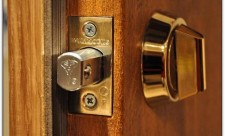
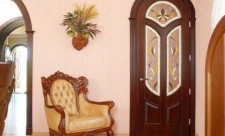
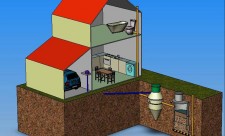
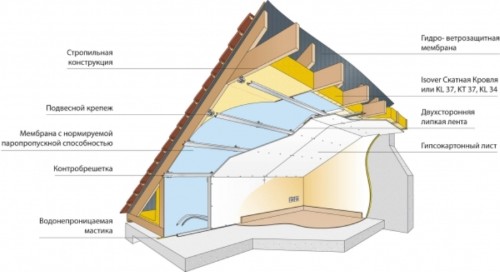
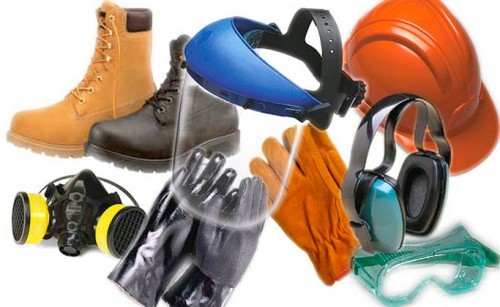


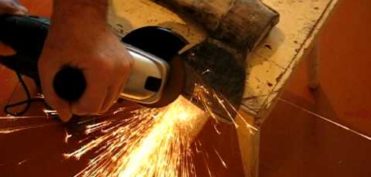
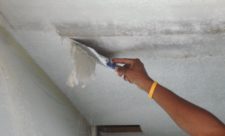
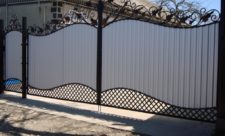
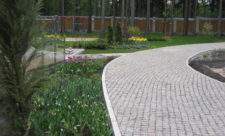
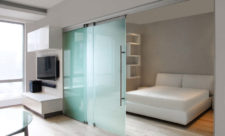
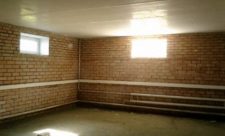
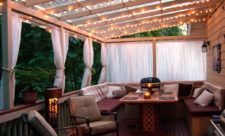






According to the Board of the Brigadier, ISOVER chose to insulate the corner room, he responded well about him, due to the optimal combination of price and quality. He performs all its functions - winter heats, in the summer cools. And nothing else is not necessary.